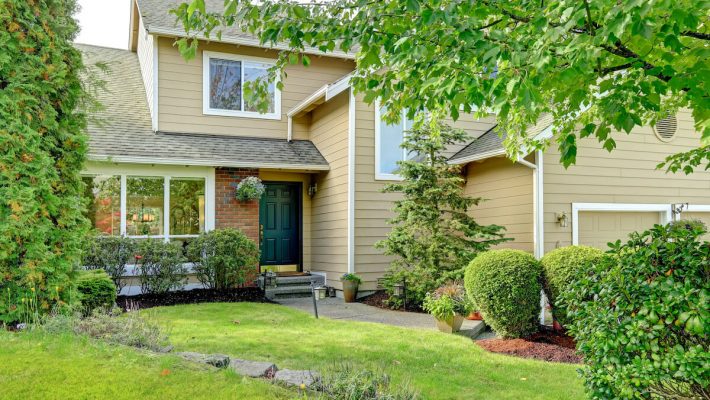Lots of folks have been feeling the “renters’ blues” lately – every time they look at their bank accounts – for good reason. Rental prices across the United States have been steadily rising for the last few years, and the vast majority of renters are feeling the pinch.
Roughly three out of every four renters (74.2%) who have relocated in the last year have seen their rents spike. Almost two out of every three (63.2%) renters who stayed put report the same increases when they renewed their leases. The trend has been particularly noticeable in urban areas where the rents have risen much faster than in other parts of the country.
Even though the most recent financial forecasts indicate that rental rates are finally starting to cool, they aren’t falling far enough (nor fast enough) to ease the strain on the average renter. That has left many renters wondering whether it’s time to start considering homeownership, instead.
What Are the Benefits of Homeownership Over Renting?
While buying a home can be a significant investment, there are several reasons why it may be a good time to make the leap from “renter” to “homeowner.” Here are a few you might want to consider.
You Can Build Equity
The most obvious advantage of homeownership over renting is that you are able to build equity over time as you gradually pay down the principal balance of your mortgage. That is investing in your home and yourself, rather than just putting money in your landlord’s pockets. When you get ready to move again, all that equity you’ve built is yours to keep. If you stay put, the equity can be used to finance everything from your entrepreneurial dreams to a child’s education.
You Stabilize Your Housing Costs
Another benefit of homeownership is that it can help stabilize your housing costs. Rents rise with the market fluctuations, and that can mean an increase in the bill every time you renew your lease. If you’re renting month-to-month, that gives you no real security. When you own a home, your mortgage payments will remain the same (assuming you have a fixed-rate mortgage), and provide a level of financial predictability in your world.
You Get a Definite Tax Advantage
Homeownership comes with several tax benefits. For example, homeowners can deduct the interest they pay on their mortgage and their property taxes from their income, which can
reduce their tax bill significantly and help them build a nest egg over time. For the work-from-home freelancer, the home office deduction is another big bonus.
You Control Your Living Space
One of the biggest complaints you ever hear from apartment dwellers is the lack of control they have over their living space. There are generally a lot of restrictions on everything from how loud they can play their music to what color they can paint the walls (if they’re allowed to re-paint at all). When you own a home, you can blast your music and make changes to the property without needing a landlord’s permission.
You Have Room to Grow
Finally, a lot of renters find it difficult to manage a growing family or a thriving home-based business in a rental unit. Kids and careers both need lots of space, and space isn’t something you usually have to spare in an apartment or multi-family dwelling. If you’re planning on growing your family or turning your side gig into an actual business, a home of your own will give you more room.
Where Do You Start if You’re Ready to Buy a Home?
The path to homeownership is more of a journey than most people realize. Unless you have piles of money in the bank and can afford to pay cash, you’re going to need a mortgage. But the rising interest rates have banks skittish about lending now. With that in mind, below are some rough steps you need to take.
Start Saving for a Down Payment
One of the biggest expenses associated with buying a home is the down payment. Depending on the price of the home and your mortgage lender’s requirements, you may need to put down 10% or more of the purchase price as a down payment. Start saving now for your down payment and be ruthless about eliminating unnecessary expenses from your budget until you have the money you need.
Check Your Credit Score
Your credit score plays a significant role in the home-buying process, as it basically controls your ability to even qualify for a mortgage and the interest rate the lender offers you. Check your credit score early to ensure it is in good standing – and keep checking it. If you have “damaged” credit, take steps to improve it now, well before you’re ready to apply for that mortgage.
Build a Strong Financial Profile
Your credit score is a huge factor in your ability to secure a mortgage, but lenders will also look at your overall financial health before deciding whether they should give you a mortgage. Some of the factors they consider include your income, employment history and debt-to-income ratio. Build a strong financial profile by paying off debt, saving money, and maintaining a steady income.
Get Pre-Approved for a Mortgage
We’ve talked about the importance of this before, and we’ll stress it again: Pre-approval is a must if you want to be competitive when it comes time to go house hunting. Not only does this give you a clear idea of “how much house” you can afford, but a pre-approval letter also shows sellers that you can back up your bid.
Research Neighborhood and Local Housing Prices
Take the time to research different neighborhoods and housing markets to find the best fit for your needs and budget. Consider factors such as commute times, school districts and nearby amenities when choosing where to look for a home. Every house deal requires some trade-offs, so start winnowing your “must-haves” from “would-likes” early.
Is This Really a Good Time to Buy?
There’s an old saying in real estate that the “best time to buy is five years ago,” and that still holds true today. Whatever the market is like today, buying a home really is an investment in your future. Consider working with a local real estate agent who can guide you through the process and help you find the right home for your needs and budget.
amanda.phillips@talktotucker.combill.ingram@talktotucker.combrad.layton@talktotucker.comeditors-pickerina.pribyshchuk@talktotucker.comfeaturedlloyd.zimmerman@talktotucker.commary.layton@talktotucker.compriscila.hale@talktotucker.comterri.mcgraw@talktotucker.com




